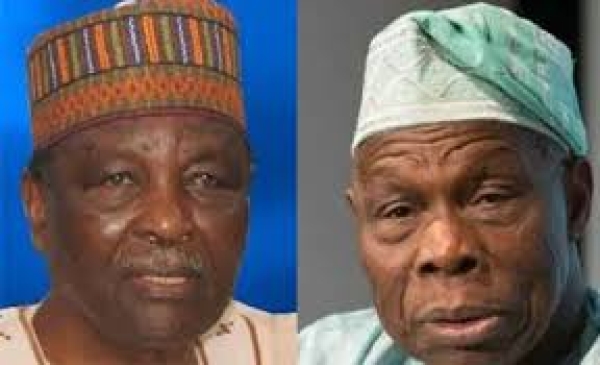The Independent Media and Policy Initiative (IMPI) has linked the origin of Nigeria’s fuel subsidy to the administrations of former military Heads of State, General Yakubu Gowon and General Olusegun Obasanjo.
IMPI alleged that the former military Heads of State implemented the subsidy during a time of economic prosperity.
Speaking to journalists in Abuja, Chairman of IMPI, Niyi Akinsiju, noted that the subsidy was initially meant to be a short-term response to a global oil price surge driven by the Organization of Petroleum Exporting Countries (OPEC).
Akinsiju pointed out that the subsidy system was meant to be discontinued during periods of economic downturn, but has persisted despite its distortions to the economy.
He expressed concern over the criticism directed at the current government by labor unions over the recent removal of the fuel subsidy, noting that many Nigerians had advocated for its elimination before 2023.
Akinsiju highlighted that under both Gowon and Obasanjo, fuel prices rose in response to economic conditions. Under Gowon, the price of petrol increased by 40%, from six kobo per liter to nine kobo, while Obasanjo oversaw a 70% rise, from nine kobo per liter to 15.3 kobo.
He said: “General Olusegun Obasanjo, then military head of state, formalised the petroleum subsidy regime into law when he numbered it among products for which the government would be responsible for fixing their prices and for which they should not be sold above the fixed prices.
“This was a short-term measure to cushion the rising international oil price. It was intended as a temporary fiscal response to an oil price spike instigated by the actions of the Organization of Petroleum Exporting Countries, OPEC.
“It is, however, instructive to note that under the two principal protagonists of subsidy, the price of petrol recorded increments in response to emerging economic realities. Under Gowon, the price increased by 40 per cent from six kobo a litre to nine kobo a litre, while under Obasanjo, it skyrocketed by 70 per cent from nine kobo a litre to 15.3 kobo a litre.
“Our argument is that subsidies were introduced into the Nigerian economic ecosystem as a consequence of the availability of fiscal resources. They were then a mechanism for a fairer redistribution of the country’s wealth among the populace in times of huge revenue earnings.
”When there is a downturn, the tendency is to halt their implementation because of the distortion inherent in their continued application.
“But, as it were, the subsidy and we as a people have become economic Siamese twins. Every move by the government to stop its application since 1988 has been received with uproar and outrage, despite the material changes in the economic dynamics that informed the policy in the first place.
“This latest furore over fuel price increase is typical of other times. The Nigeria Labour Congress, NLC, has taken its traditional front role and, as always, pointing fingers at the federal government for being responsible for the price increase.
“However, as a body of analysts, we submit that all this trouble-mongering should stop.”
[NaijaNews]


